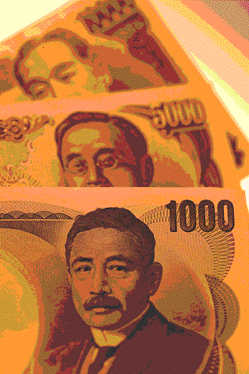Last week, while talking to anchor Joe Kernen on CNBC, I noted that President Donald Trump achieved more for the Japanese economy in five weeks than Prime Minister Abe had in five years. I was only slightly exaggerating.
For starters, Abe hasn‘t been prime minister for quite five years, but certainly most of his efforts to stimulate the economy over that time have been for naught. After three decades of deflation, Japan remained mired in a slow–growth environment, and Abe‘s “three arrows” of reform had done little to jump–start the moribund economy.
Until Donald Trump got elected.
Then global capital markets exploded as money started to move out of bonds into stocks, U.S. yields went on a melt–up and the dollar hit 14–year highs against its major trading currencies.
USD/JPY rose in a near vertical line from 101.00 in the aftermath of the election to 118.00 today, adding a cool 16% in less than two months, resulting in one of the best possible holiday gifts for Japanese businesses.
The greatest irony is that Japanese policymakers have done nothing to accomplish this resurgence. In fact, for the past several years, the Japanese authorities have tried to throw everything but the kitchen sink at the economy.
|
|
| One symptom of Japan’s improving export-driven economy, the yen has been falling ever since Donald Trump was elected president. |
The Bank of Japan bought up all the long–term Japanese Government Bonds, then added ETFs to its mix until the central bank was the largest shareholder of the Nikkei 225, and finally it focused on propping up the yield on the benchmark 10–year bond.
All to no avail. The yen remain stubbornly strong as long as U.S. rates were low.
Now with U.S. yields in a clear rally, the yen has finally weakened materially and the benefits of that move should begin to become evident to the export–driven Japanese economy in the first half of next year.
While investors have been focused on the Dow 20,000 as we approach the New Year, the Nikkei has been making a run at the 20,000 as well. Granted the Nikkei has been there many times before, but its perch at the 20,000 mark may be longer lasting that the Dow‘s. That‘s because Japanese corporations may benefit not only from the favorable exchange rates, but from Mr. Trump‘s aggressive new stance against China.
In the global economy, China now represents the biggest market for cars, movies and maybe even fast food. While there is no love lost between China and Japan, the new tensions between China and the U.S. could mean that Japanese corporations could benefit by default, especially if China decided to retaliate against U.S. corporations as it has already threatened to do. If Chinese authorities begin to slap a levy or refuse expansion plans for U.S. brands, the Japanese will fill the vacuum, helping power their growth in 2017.
In the meantime, not looking a gift horse in the mouth, Japanese policymakers have been happy to keep the yen as weak as possible.
Last night BOJ chief Kuroda, refused to provide any support to the currency. And he, in fact, reiterated that the central bank will continue with its aggressive QE program unabated.
Given the dramatic decline in the yen, we thought that Mr. Kuroda would at least take his foot off the pedal. No such luck. The governor announced that the central bank will continue to buy ETFs at the current pace.
Still with both U.S. yields and USD/JPY hovering near yearly highs some end–of–year profit–taking may be due. USD/JPY could drop to 114.00 without damaging its long–term uptrend.
There is a saying in the currency market: The USD/JPY takes an escalator on the way up and an elevator on the way down. So any selloff could be quick and dramatic.
However, when it comes to next year, the prospects for Japanese economy and Japanese equities look bright. Little wonder then that Donald Trump‘s biggest fans may reside in Tokyo.
Happy Trading,
Boris


{ 1 comment }
I wonder if American Manufacturers are cheering this news?